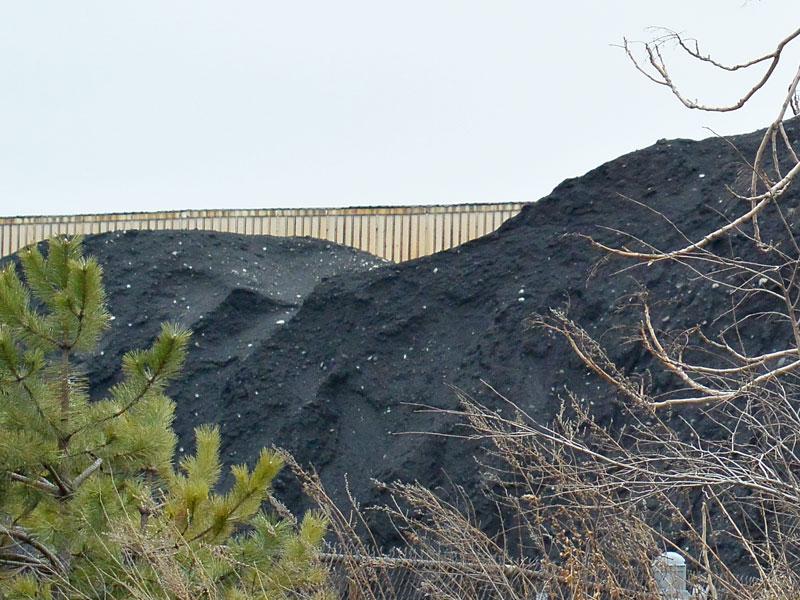Health Effects of Petroleum Coke
What is petroleum coke?
Petroleum coke, also called pet coke or petcoke, is a solid carbon material that resembles coal; it is a product of oil refining.
What are the health risks of petroleum coke?
Significant quantities of fugitive dust from pet coke storage and handling operations present a health risk. EPA is particularly concerned about particles that are 10 micrometers in diameter or smaller (referred to as PM10) because those are the particles that generally pass through the throat and nose and enter the lungs. Once inhaled, these particles can affect the heart and lungs and cause serious health effects. The air quality monitoring equipment installed by KCBX at its North and South facilities continuously measures concentrations of particulate matter 10 micrometers and smaller.

- Particulate matter (also known as particle pollution or PM)
- Particle Pollution and your Health
- Health and Environmental Effects of Particulate Matter
Petroleum coke is 90% elemental carbon and 3% to 6% elemental sulfur; the rest is elemental hydrogen, oxygen, and nitrogen. There are also trace amounts of metals and organic compounds. While trace amounts of toxic materials have been measured in petroleum coke, studies on rats show that petroleum coke itself has a low level of toxicity and that there is no evidence of carcinogenicity.
Screening-Level Hazard Characterization of Petroleum Coke
EPA’s research does not suggest that petroleum coke poses a different health risk than PM10.
ATSDR Health Consultation
In response to a December 2013 petition from Senator Durbin and Representative Kelly, on August 22, 2016, ATSDR finalized a Health Consultation summarizing the potential impact of particulate matter on residents living near the KCBX petcoke storage piles on the southeast side of Chicago, an environmental justice community.
ATSDR evaluated data from PM10 air monitors required through a November 2013 EPA Region 5 Section 114 Information Request.
- To date, the North facility is no longer in operation, and no petcoke, nor any other bulk solid material, is stored at the site.
- The South facility has been converted to a trans-loading operation, meaning that material is no longer stored at the facility, but it continues to operate equipment that transfers petcoke and other material from railcars to ships and barges.
- KCBX removed all of the air monitors at the North facility in December 2015, with EPA approval.
- KCBX removed the filter-based air monitors at the South facility (with EPA approval) in March 2016, but they continue to operate five continuous PM10 monitors at the site.
ATSDR Review of Analysis of Particulate Matter and Metal Exposures in Air (PDF) (50 pp, 3.7 MB, About PDF)
Detroit Bulk Storage
In 2013, the City of Detroit had a similar issue; residents were concerned about pet coke storage and handling facilities. Michigan Department of Environmental Quality Exitconducted analyses of the constituents of pet coke, and of potential health effects.
